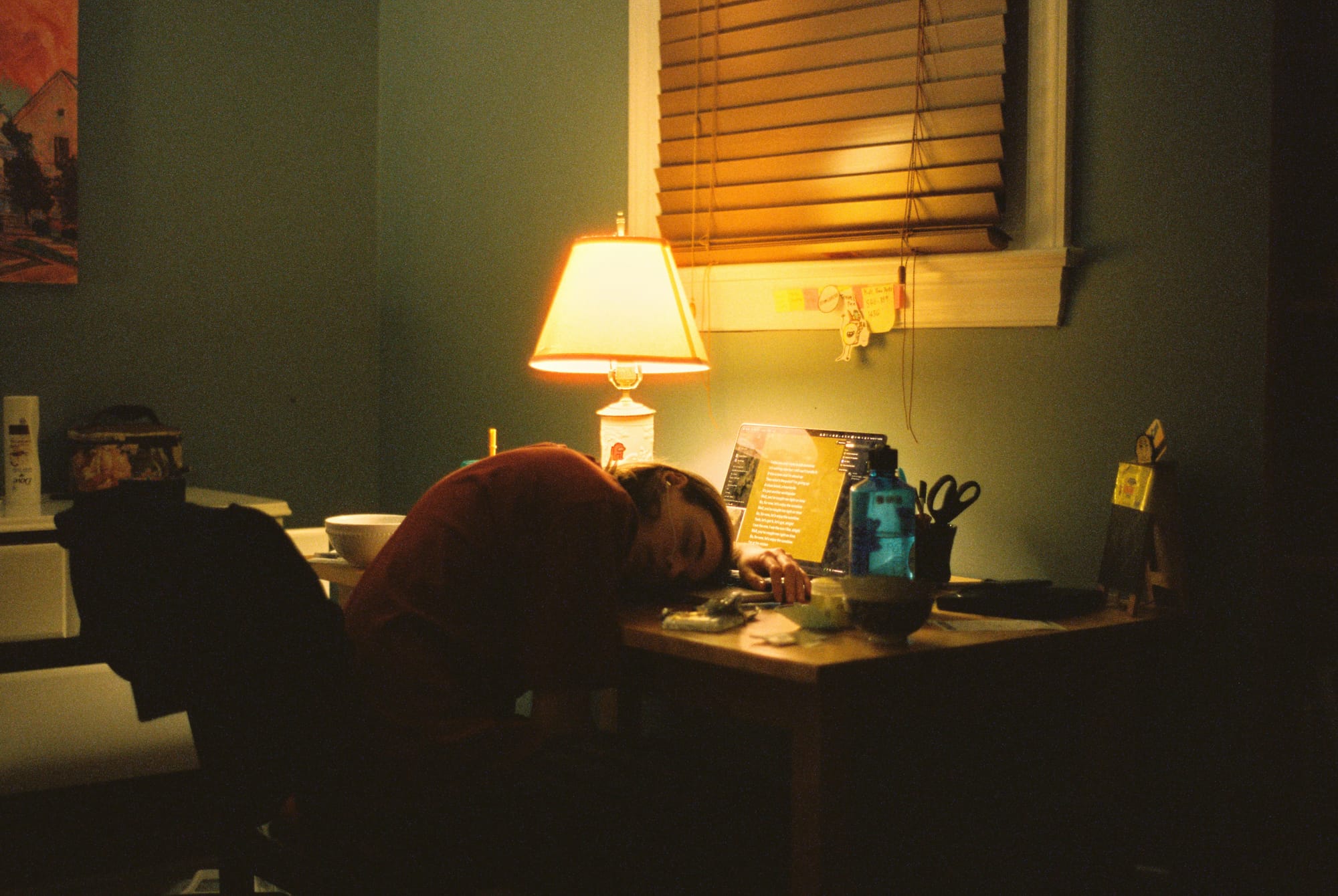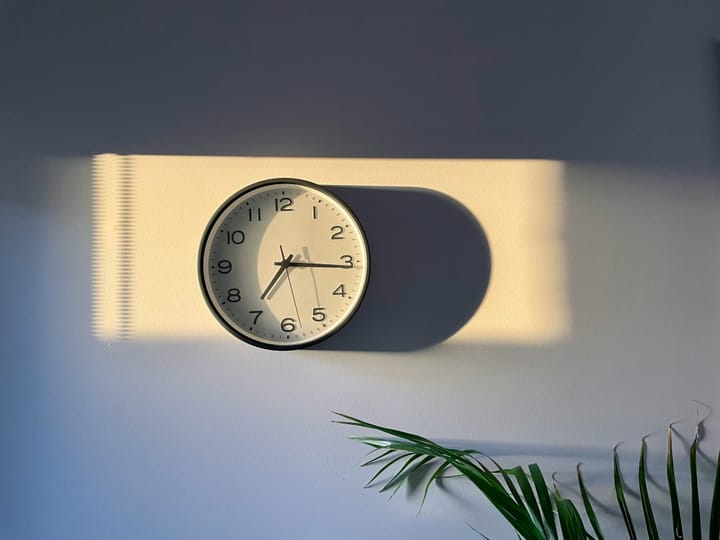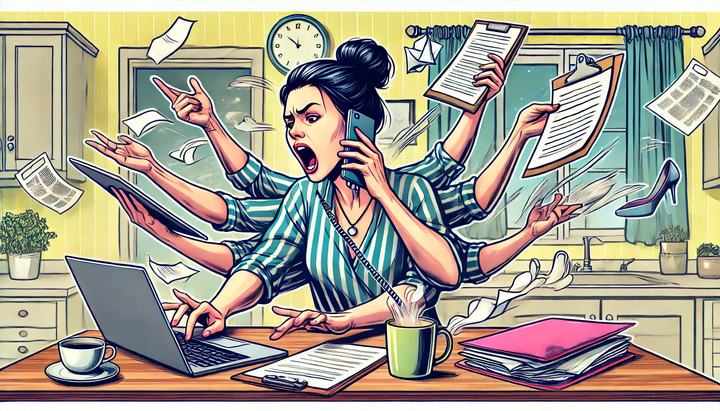Why Are You Productive For "Only" 5-6 Hours Each Day?
Almost no one is productive for 8 hours a day straight! Learn why and how to think about your daily productivity differently.

In October 2025, I was interviewed for an article titled "Most employees aren’t productive the whole workday. HR can help them get the most out of it", by Mikaela Cohen of HR Brew, a sub-newsletter of the popular Morning Brew newsletter. The basis of the article stems from a study by Kickresume, which revealed, among other findings, that most workers self-report that they are “only” productive for 5-6 hours per day. Though my part in the article ended up being brief, I did a lot of additional (over) preparation. The following are the answers I came up with (that mostly didn’t make it into the article) to answer the question:
Why do you think the data in the article found that workers are most productive for only 5-6 hours per day, instead of eight?
Firstly, the eight-hour day movement originated during the Industrial Revolution, which was based on a model focused on creating safer and more humane conditions for manual labour in factories, not knowledge work. While manual labour still includes these, knowledge work relies exclusively on mental labour, such as problem-solving, learning, and creativity, which don’t scale linearly with time in the same way that manual labour does. Though obviously, people working manual labour are also not linearly productive for eight hours straight either.
For knowledge workers in particular, there is an assumption that the number of hours you work is directly correlated to your productivity. This is false. Here’s why, along with some considerations to help you be productive during the time you do spend.
1. Most human brains can’t sustain deep focus for eight hours and have natural energy cycles
For actual deep focus, where you are most productive, you typically get 3-5 hours, and then mental fatigue starts to set in. And that focus isn’t usually for 3 hours straight. Instead, you have natural energy rhythms that wax and wane throughout the day, during which you will experience better mental energy than at other times.
What to try: Knowing you only have a few hours a day, at most, for deep focus, consider when you feel most alert and have your best mental energy. Can you plan your deep work for those times? These cycles will vary based on factors such as your chronotype and where you fall on the introversion-extroversion scale.
2. Knowledge workers don’t know how (or can’t) manage their mental energy effectively
The ability to maintain deep focus, even for shorter periods, relies on having mental energy. But one of the challenges I see with my clients is that they are overwhelmed by distractions, interruptions, and repeated context switching. These are productivity killers because they rapidly deplete your mental energy.
Every time you are interrupted by an instant message, email, or other people, you have to reorient yourself to what you were doing over and over, which is costly. The same idea applies when you have meetings scattered throughout the day or try to multitask. The more mental energy you spend, the less productive you are.
What to try: Mental energy management most often comes down to boundaries. As much as possible, consider when and how frequently you check your email and instant messages, when you schedule meetings, and how often you allow yourself to be interrupted each day.
Here are some articles with specific tactics for each of:
*Your ability to take action on some of these things will depend on your position and how much freedom you have to make decisions about how you spend your time.

3. Most people struggle with estimating how much time is truly available each day
One of the exercises I often do with my clients is to have them map out what an average week in their life looks like, including activities such as driving, commuting, eating, cooking, showering, getting ready for bed, kids' activities, weekly errands, fitness, and breaks. Most people are shocked when they see a visual of what is actually possible in a day, versus their expectations and all the things they are trying to jam in. Funny enough, they usually have those 5 or 6 hours, rather than the eight (or more) that they imagine.
What to try: Map out your week to see where you actually spend your time, so you can make more intentional decisions about what you prioritize and when. Here are some detailed instructions on how to do it.
4. A lot of people are exhausted
Shockingly, you don’t go to work and have the Severance experience where work and the rest of your life are entirely separate. As I often say to my clients, work-life balance is a myth. You only get one life, and all the other responsibilities, feelings and challenges you are experiencing are carried with you, wherever you are, which (of course) impacts your productivity.
There are also many culturally ingrained reasons why exhaustion is more often the rule than the exception, but the one I see most frequently in my practice is the assumption that rest is a waste of time. Many people don’t give their minds and bodies the rest they need because they want to “be productive” all the time. They are not getting enough sleep or true, restful downtime, forgetting that (in addition to just being joyful and good), rest is productive.
Add to that the numerous disasters facing the world, which contribute to the collective stress of society, and it can become difficult to feel motivated and energized. Turns out, it’s tough to be productive when you are exhausted!
Energy is a resource that is only renewed through proper rest, movement, nutrition, and play (including creativity and connection). However, the things that often get cut when life gets busy are usually the very things that are most renewing and help you feel better, which in turn makes you more productive.
What to try: What are you doing for fun these days? What are the things that energize you? What are the things that drain you? Which is getting more bandwidth in your life? How will you make space for rest?
What else can be done?
If you know you are only getting 5 or 6 hours of productivity a day, the best thing you can do is figure out how to work most effectively within those parameters.
There are two perspectives to consider:
First is as individuals, taking action on the items I listed above. Experiment with boundaries and try to be more intentional about how you structure your day. Identify and be more aware of your natural energy cycles to plan the type of work you do and when it is most effective. Protect those 5-6 hours as much as possible.
The second part is as leaders in your organizations. Consider what you can do to shift expectations and office culture. The amount of time someone spends in their seat is not a good measure of productivity. Instead, set expectations and accountability around outcome-based deliverables and goals, rather than focusing on the number of hours someone works.
There is an opportunity to establish expectations and provide opportunities within organizations for breaks, rest, movement, and flexibility in work schedules. Happy, rested people will perform their work more efficiently than those who are disengaged and exhausted. If you offer flexibility in start and end times, remote work options, and give people some freedom in how they plan their work time, they will be able to get more done and be happier.
If you need some strategies to help you and your team protect your most productive work time, please reach out!
Share
Ashley Janssen

Productivity consultant, writer, speaker, serial entrepreneur, chaos calmer, introvert, cat-lady. Lover of books, fitness, old fashioned’s, basketball, and video games.
Follow me on
Twitter
or
LinkedIn.
Hire me for
1 on 1 productivity consulting
or
speaking.
Related articles

When You Do Things Matters

What If Being Lazy Was a Good Thing?


Comments ()